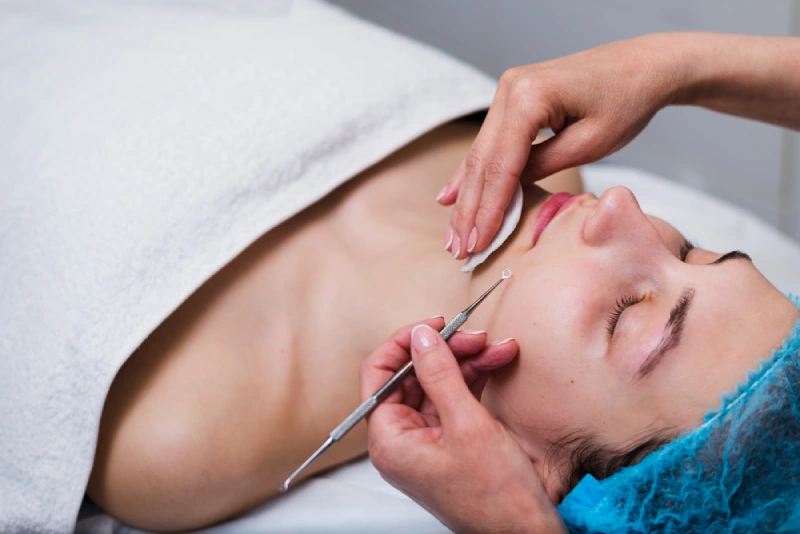Psoriasis has been known since ancient times. It is an inflammatory skin disease that can run in families with faulty genes. The condition has nothing to do with hygiene and it is not contagious. Everyone’s skin cells divide and shed some dead cells every day. In psoriasis, skin cells in certain patches divide many times too fast and shed too fast, causing white scales to fall from the patches. The underlying skin is red due to enlarged blood vessels. The word “psoriasis” means “itchy” in Greek, and the skin lesions are quite itchy, due to their dryness. This dryness affects the nerve endings, which send the itch message to the brain. Scratching lesions can cause bleeding and further inflammation, and so is not advised.

Psoriasis is diagnosed by a medical doctor specializing in diseases of the skin. He or she is known as a dermatologist. The technique for diagnosis is called a biopsy. A small bit of skin is removed with minor to no discomfort and looked at under a microscope. Once the diagnosis is made, treatment can begin.
Although no absolute cures exist, highly effective treatments have been developed in the past few decades, and research continues to advance. For minor cases, some patients use over-the-counter skin moisturizers to take care of dryness, plus some time in the sun to slow down skin cell reproduction. Vaseline can be used to soften scales, which will then fall off without causing bleeding, although this can be quite messy.
Cortisone, in its topical, oral, and injectable forms, has long been a mainstay of treatment. It is similar to cortisol, a hormone produced by human adrenal glands, sitting atop the kidneys. Its effectiveness in treating psoriasis lies in its antiinflammatory properties.
Ointments are more effective, but creams are less messy. Shampoo and foam are available for the scalp. Tape is yet another topical cortisone vehicle. Some of the most popular topical preparations are:
- Low potency
- Hydrocortisone–Cetacort lotion, Cortaid cream, spray, or lotion, Hytone cream or lotion, Micort-HC Cream, Nutracort lotion, Synacort Cream
- Alclometasone dipropionate–Aclovate Cream or Ointment
- Desonide–Desowen Gel, Desonate Foam, Verdeso 3
- Flucinolone acetonide–Synalar Cream or Solution
- Medium potency
- Betamethasone dipropionate–Valisone Cream or Ointment
- Hydrocortisone valerate–Westcort Cream
- High potency
- Desoximetasone–Topicort Cream or Ointment
- Halcinonide–Halog Ointment or Cream
Cortisone is also available in pill form for use over a short time. It may not be used permanently, due to side effects. Injections of cortisone can be given directly into skin lesions in patients with a small number of patches.
Methotrexate is an oral medication that works by slowing down cell division. It does this by lowering the body’s store of folic acid, a B vitamin. Since psoriatic cells divide too fast, methotrexate can often restore psoriatic skin to normal. Since cells in blood marrow also divide rapidly to make new blood cells, methotrexate can cause anemia, and patients must have their blood checked regularly.
Otezla (apremilast) works by inhibiting an enzyme in inflammatory cells. It is taken in pill form once a day. Patients using it can achieve 75% remission.
Biologic medications are relatively new, and highly effective in extensive cases. They were developed when the root cause of psoriasis was discovered. Psoriasis is an autoimmune disease, produced when the body’s own immune system attacks body cells. Biologic medications are used to calm the immune system, with great success. They are given by injection just under the skin. Some patients inject themselves, while others are injected in their dermatologists’ offices. At present there are eleven biologics:
- secukinumab (Cosentyx)
- etanercept (Enbrel)
- adalimumab (Humira)
- infliximab (Remicade)
- brodalumab (Siliq)
- ustekinumab (Stelara)
- ixekizumab (Taltz)
- guselkumab (Tremfya)
- certolizumab (Cimzia)
- tildrakizumab (Ilumya)
- risankizumab (Skyrizi)
Because the biologics affect the immune system, patients are susceptible to infections, and immunizations may not be as effective as they are in individuals not taking these medications. Patients should avoid close contact with infected individuals and let their dermatologists know if they have been ill before receiving injections. Research is ongoing, and it is only a matter of time until a cure is found. In the meantime, good control is achievable.




